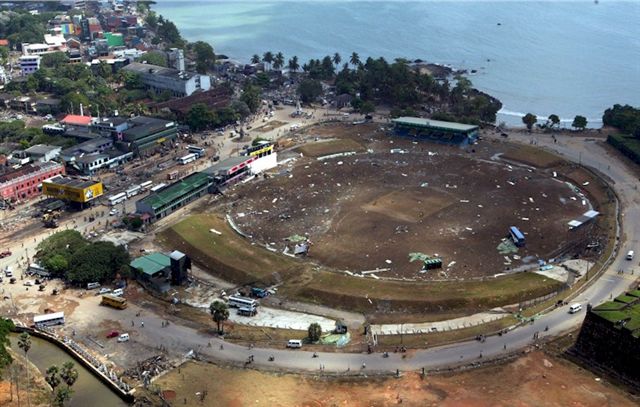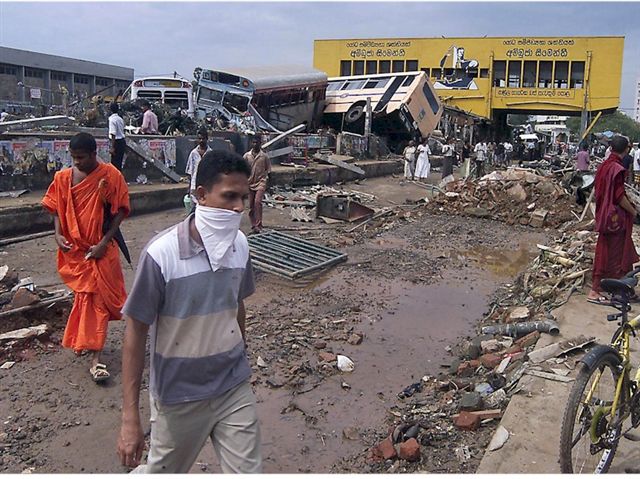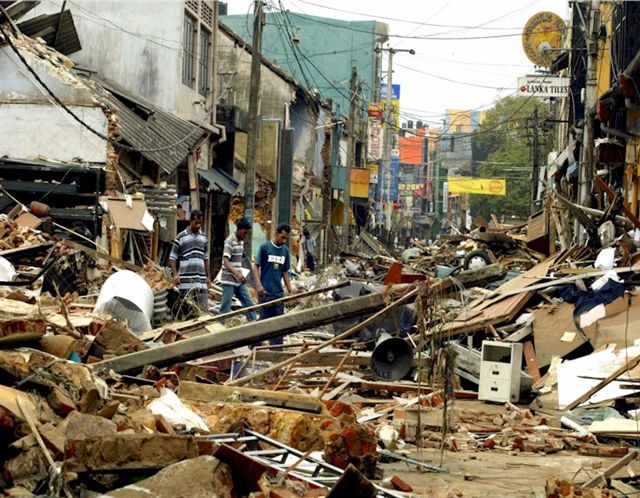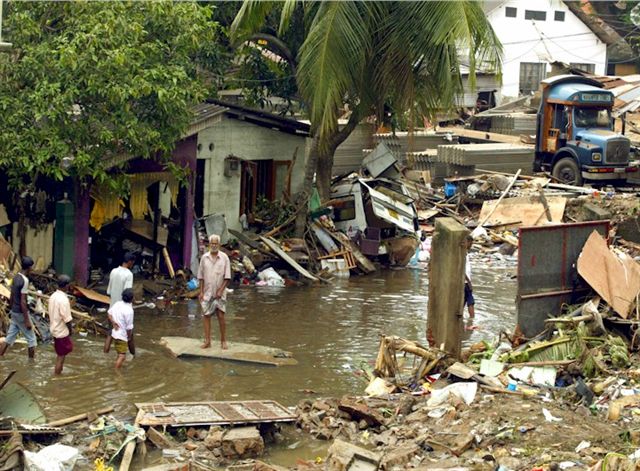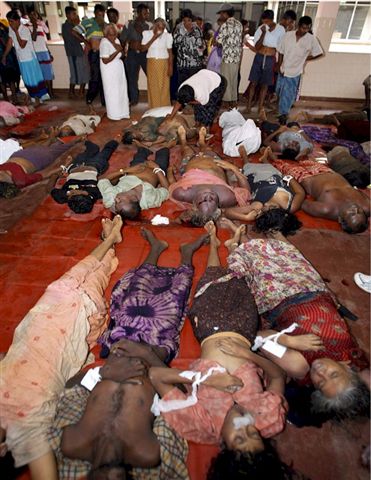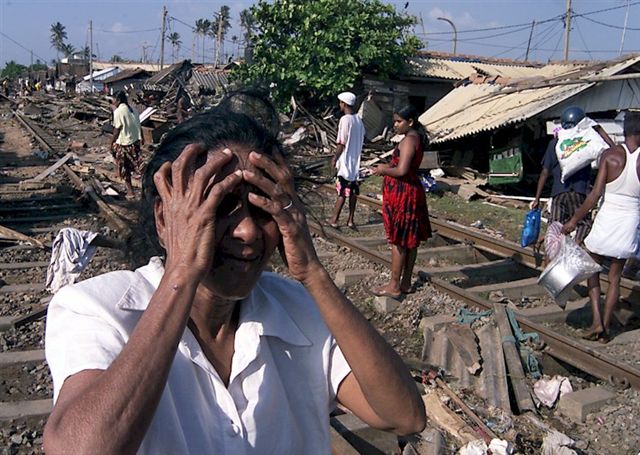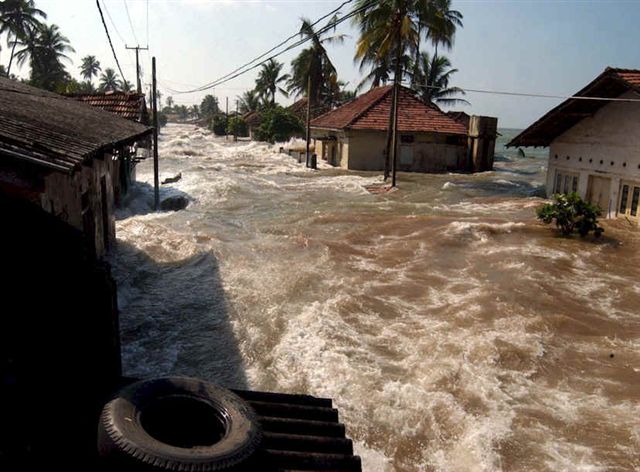The most powerful earthquake in 400 years erupted under the Indian Ocean near Sumatra on Dec. 26, 2004. It caused giant, deadly waves to crash ashore in nearly a dozen countries, killing tens of thousands.
A long stretch of Sri Lanka’s coast was devastated by these killer waves, with more than 40,000 dead and staggering 2.5 million people displaced. Although 1,600km from the epicentre, the waves struck with huge force and swept inland as far as 5 kilometres. Waves as high as six meters had crashed into coastal villages, sweeping away people, cars and even a train with 1700 passengers. It was the worst human disaster in Sri Lanka’s history.
One of the worst hit areas was my home city Galle, the capital of Southern Srilanka. The water came from two sides to Galle town giving no chance for many people who were going about their daily life on that faithful Sunday 26th Dec 2004 ( boxing day ) . In my sitting room in Ashford in Kent, England, I watched with my wife Ruvini and my three children open mouthed and in utter disbelief the pictures of devastation in Galle, beamed to the whole world by BBC. Four girls were hanging on to the roof of a shelter at Galle main bus station against the powerful waves sweeping through the whole town. The world watched in horror their struggle to stay off the inevitable and cried their hearts out when all the girls were swept away to their deaths in front of our eyes. . We could not believe what had just happened in my home town. It was sheer death and destruction everywhere.
When British media started to say that most of the £millions donated to Relief effort in Srilanka by generous British public were being wasted by NGOs and major aid agencies, on five star hotel accommodation and luxury vehicles, whilst the victims with harrowing accounts still languishing in tents, I was outraged. As a son of Galle, I felt that I should initiate a programme where we could help victims directly bypassing NGOs. It was my duty to do something for my fellow countrymen in their hour of dire need. I immediately wrote an e mail to all my friends, colleagues and engineering companies where I had done consultancy work in the past asking them to come to help victims in Galle. When they read my heartfelt E mail appeal, most of my British colleagues and friends called me back immediately to pledge me support. My then employer, Carolyn Nevinson at Brookson Umbrella Limited promptly wrote a cheque for me to build a house for a family who lost loved ones. Few other companies offered the same. Many colleagues and friends of mine and Ruvini sent in money to support poor children who lost one or both parents. UK FRIENDS OF GALLE (UKFG ) was born as a result of their extraordinary generosity.
We had all seen the television pictures, yet the aftermath still seemed oddly unbelievable. How could this have taken place? Four months after tsunami when I visited Galle with my family to oversea the reconstruction work initiated by UKFG , the feeling is intensified. There, just out there, the sea is lying, stolid and sparkling and magical, lying as it surely always has. Yet here, just beside the road, lies still a ruined train, a boat in a shop, and there, beneath those coconut palms, is a mass grave. You will find yourself, should you come to Sri Lanka, splashing out from the safe warm sea at one point only to turn back and stare at it, wondering: trying to imagine just how strange and terrifying it must have been to witness it going so wrong.
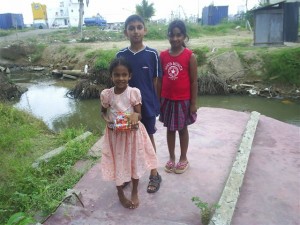
Nirosha Kavindi ,the 6 year old little girl who received one of our first scholarships told me the harrowing account of how she and her mum were drowning in the canal near the harbour. Her mother somehow found the strength to push her out to the bank before being swept away to her death in front of Nirosha. Charlet, an American girl who went on relief work to Galle later wrote “A generation lost in a heartbeat. I see shock on the faces of the survivors, and am reminded yet again of how everything can change in an instant. Whether it is an earthquake, a Tsunami, a tornado, or planes hitting towers, life is so fragile. Everything can be gone in the blink of an eye; we are so little, nature and war are so big. Yet we have this illusion, at least in the West, that we are in control. So I look, and look again, compelled to try to discern how people do it. How do you go on when your village, your home, your family, is destroyed? I see the faces of those who I met in the refugee camps, and it is the eyes that capture me.
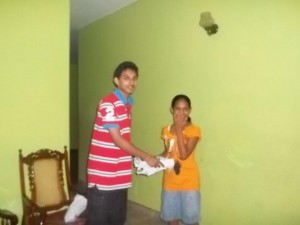
And it is the eyes of the children that haunt me, and make me unable to sleep through the night.”
Click the photos below to enlarge

